Filter by

Stem Cells in Neuroendocrinology
This volume starts with an elementary introduction covering stem cell methodologies used to produce specific types of neurons, possibilities for their therapeutic use, and warnings of technical problems. In addition the authors report successes in achieving the derivation of a specific type of neuron. The dopamine neuron offers an important example and is discussed in more detail. Additional ch…
- Edition
- -
- ISBN/ISSN
- 978-3-319-41603-8
- Collation
- XII, 156 halaman
- Series Title
- Research and Perspectives in Endocrine Interactions
- Call Number
- 616 STE
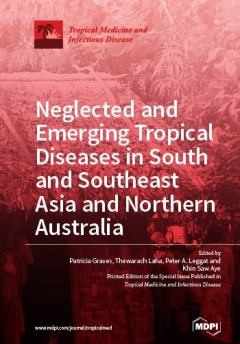
Neglected and Emerging Tropical Diseases in South and Southeast Asia and Nort…
This Special Issue focuses on recent research on the important emerging and neglected tropical diseases (NTDs) in South and South East Asia and Northern Australia. This region stretches from Afghanistan in the west to Papua New Guinea in the east, and includes the Indian subcontinent, mainland South-East Asia (Indo China), maritime South East Asia, and the tropical regions of Australia. Many of…
- Edition
- -
- ISBN/ISSN
- 978-3-03897-090-3
- Collation
- -
- Series Title
- -
- Call Number
- 616 NEG

MRI-Arthroscopy Correlations: A Case-Based Atlas of the Knee, Shoulder, Elbow…
Integrating MRI findings associated with the spectrum of problems seen in the most commonly treated joints in sports medicine with the diagnostic findings seen during arthroscopy of the same joint in the same patient, this unique text correlates this pathology and applies these findings to the clinic, the radiology reading room and the operating suite. Representing a microcosm of daily patient …
- Edition
- -
- ISBN/ISSN
- 978-1-4939-2645-9
- Collation
- -
- Series Title
- -
- Call Number
- -
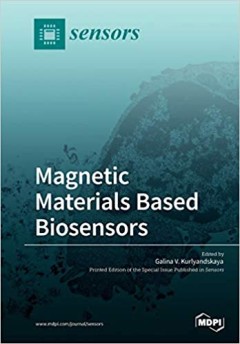
Magnetic Materials Based Biosensors
Selective and quantitative detection of different kinds of biocomponents plays an important role in biomedical applications, clinical diagnostics, environmental monitoring, toxicology, regenerative medicine and drug delivery. Therefore, multidisciplinary area of magnetic biosensing have been extensively developed in recent years, aiming to create compact analytical devices for non-expensive and…
- Edition
- -
- ISBN/ISSN
- 978-3-03897-255-6
- Collation
- -
- Series Title
- -
- Call Number
- 616 MAG

Diseases of the spinal cord : novel imaging, diagnosis and treatment
Spinal cord imaging has significantly benefited from new MR imaging methods such as cardiac-gated diffusion-weighted imaging, diffusion tensor imaging with fiber tracking, and time-resolved MR angiography. Recent decades have also witnessed fundamental progress in understanding of the pathophysiology of vascular, metabolic, and inflammatory spinal cord diseases. Furthermore, neurosurgical proce…
- Edition
- -
- ISBN/ISSN
- 9783642542091
- Collation
- 463 pages
- Series Title
- -
- Call Number
- 610
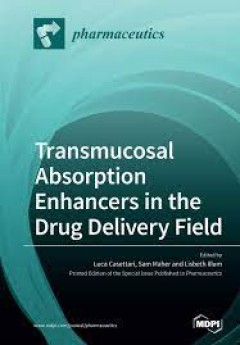
Transmucosal Absorption Enhancers in the Drug Delivery Field
Development of strategies to assist the movement of poorly permeable molecules across biological barriers has long been the goal of drug delivery science. In the last three decades, there has been an exponential increase in advanced drug delivery systems that aim to address this issue. However, most proprietary delivery technologies that have progressed to clinical development are based on perm…
- Edition
- -
- ISBN/ISSN
- 978-3-03921-849-3
- Collation
- -
- Series Title
- -
- Call Number
- 615 TRA

Female Genital Tract Congenital Malformations Classification, Diagnosis and …
Female genital malformations represent miscellaneous deviations from normal anatomy. With a prevalence of approximately 6% in the general population, they might be associated with health problems, potentially dangerous complications or poor reproductive outcome depending on the type and the degree of the anatomical abnormality. During the last two decades the better understanding of their patho…
- Edition
- -
- ISBN/ISSN
- 978-1-4471-5146-3
- Collation
- XVI, 318
- Series Title
- -
- Call Number
- -

Disorders of the Hand : Volume 4: Swelling, Tumours, Congenital Hand Defects …
This book comes at a time when significant advances in the understanding of hand disorders have resulted in vast improvements in the quality of life for patients. It describes the techniques and practices for the diagnosis and treatment of various disorders of the hand and wrist. Each condition is discussed in detail and illustrated with images, radiographs and line drawings. Clinical pearls ar…
- Edition
- -
- ISBN/ISSN
- 9781447165637
- Collation
- XII, 280 pages 181 illustrations, 113 illustrations in color
- Series Title
- -
- Call Number
- 610
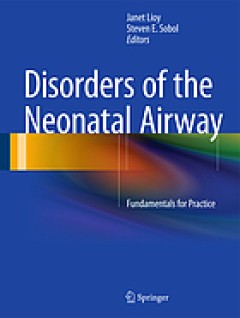
Disorders of the neonatal airway : fundamentals for practice
Disorders of the Neonatal Airway serves as a comprehensive, multidisciplinary resource for all practitioners who care for neonates with airway disorders. With the evolution of advances in neonatology and neonatal airway care over the past three decades, the survival rate and life expectancy of premature newborns have dramatically increased to well over 50% in 24-25 week gestation infants. Unfor…
- Edition
- -
- ISBN/ISSN
- 9781493916108
- Collation
- xix, 401 pages
- Series Title
- -
- Call Number
- 363.124
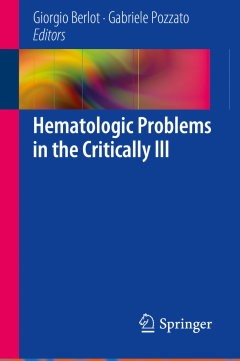
Hematologic Problems in the Critically Ill
This book covers a wide array of hematologic problems commonly encountered in the daily practice of critical care and emergency medicine. Unfortunately, the symptoms and signs associated with underlying hematologic disorders are frequently rather unspecific and confounding; furthermore, the clinical course of patients admitted to intensive care units with such disorders can be fulminant, warran…
- Edition
- -
- ISBN/ISSN
- 978-88-470-5300-7
- Collation
- V, 147
- Series Title
- -
- Call Number
- 611.12 HEM
 Computer Science, Information & General Works
Computer Science, Information & General Works  Philosophy & Psychology
Philosophy & Psychology  Religion
Religion  Social Sciences
Social Sciences  Language
Language  Pure Science
Pure Science  Applied Sciences
Applied Sciences  Art & Recreation
Art & Recreation  Literature
Literature  History & Geography
History & Geography